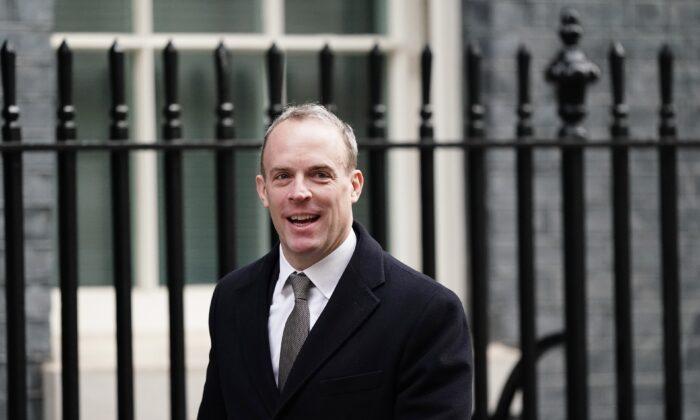The government has decided to abandon the Bill of Rights, Justice Secretary Alex Chalk has told Parliament.
“Having carefully considered the government’s legislative programme in the round, I can inform the House we have decided not to proceed with the Bill of Rights. But let me say that the government remains committed to a human rights framework which is up to date and fit for purpose and works for the British people,” Chalk said.
“We have taken and are taking action to address specific issues with the Human Rights Act and the European Convention [on Human Rights] including through the Illegal Migration Bill, the Victims and Prisoners Bill, and Overseas Operations Act 2021 and indeed, the Northern Ireland Legacy Bill, the last of which addressed vexatious claims against veterans and the armed forces,” he said.
The justice secretary added that the process to “recalibrate and rebalance our constitution over time” continues.
Chalk’s predecessor, Dominic Raab, introduced the bill during his time as justice secretary in 2022. Following the resignation of former Prime Minister Boris Johnson, the succeeding Prime Minister Liz Truss shelved the bill. It was then reintroduced by Raab, who was reappointed as justice secretary under current Prime Minister Rishi Sunak. Following Raab’s resignation in April, Chalk headed the justice department, while the Bill of Rights remained at its first reading stage at the House of Commons.
The second reading date for the bill has not been announced.

Bill Provisions
In the 2019 Conservative Party Manifesto, which was released ahead of the official Brexit date in January 2020, the Tories vowed to update the Human Rights Act “to ensure that there is a proper balance between the rights of individuals, our vital national security and effective government.”In June 2022, the government announced “after careful consideration” that the bill would restore “some common sense to our justice system.”
The bill would also restrict foreign national offenders in using the European Court of Human Rights to challenge deportations based on claims of breaches to their right to a family and private life. The bill also excluded extraterritorial jurisdiction for military operations abroad.
Shadow justice secretary Steve Reed and his Northern Ireland counterpart Peter Kyle have urged the government to scrap the bill and abandon the idea to replace the Human Rights Act. They wrote to Raab in December last year, suggesting that the new bill will slow down conviction and potential removal of foreign terrorists “by forcing the security services to pursue them in the European rather than British courts.”
They have also argued that the Human Rights Act served as the “scaffolding” upholding the Good Friday Agreement, the peace accord that ended Northern Ireland’s Troubles.
The lawmakers argued that the new bill appeared to be “incompatible” with the obligations under the Good Friday Agreement to incorporate the European Court of Human Rights and provide direct access to courts.
“This alone should be enough for you to withdraw it,” the letter said.





